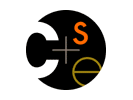
|

CSEP 552: PMP Distributed Systems, Spring 2013 |
|
TA: Johnson Goh
Office hours: by appointment
(send email to johnson at cs dot washington dot edu)
Lectures: Mondays, 6:30pm-9:20pm, in CSE 305.
Prerequisities: the basic prerequisite is to have taken an undergraduate operating systems course (CSE 451 or equivalent) or an undergraduate networking course (CSE 461 or equivalent). If you haven't taken an undergrad OS or networks course, please come talk to Steve. We will not be covering undergraduate material in this course.
Papers: you will be responsible for reading approximately three papers before each class, and contributing your thoughts on each assigned paper to the class discussion board before the class that covers it.
Projects: every few weeks, I'll hand out a programming assignment related to the course material. You will work on the programming assignments solo.
Announcements:
https://catalyst.uw.edu/gopost/board/gribble/32317/The discussion board has three areas:
Videos of the lectures will be made available from this page within a day or two of the lecture itself.
Date |
Reading |
Slides / Notes |
| April 1 | Introduction |
intro rpc dns |
| April 8 | Time, Clocks, and Global States |
clock sync logical clocks snapshots (slides) |
| April 15 | Consistency, Coherence |
overview DSM coda bayou |
| April 22 |
Transactions and Replication
|
concurrency control and recovery two-phase commit |
| April 29 | Consensus |
intro to consensus paxos slides chubby |
| May 13 | The Google Storage Stack |
bigtable megastore spanner |
| May 20 | More Data Center Topics |
cap intro PNUTS Dynamo COPS |
| May 30 | Big Data Processing |
MapReduce Dryad/DryadLINQ GraphLab/PowerGraph |
| June 3 | DHTs and P2P |
P2P filesharing P2P DHTs BitTyrant |
| June 10 | Security |
PBFT SUNDR BAN logic |
You should also be able to do the programming assignments on your own personal machines; none of them require large or exceptionally powerful machines. I'd recommend doing your work on Linux; I'd start with a standard Linux Ubuntu distribution. Note that the department has made virtual machine images available with the departmental linux installation on them. You'll need to get ahold of VMware to use them.
A few rules of the road are worth mentioning. For design questions, you should feel free to talk with each other about the question and ideas that you come up with. You should not, however, share your written answers with each other directly. If you do discuss ideas with each other, please cite who you discussed with in your turned in work. This is mostly so that you get in the habit of properly attributing collaborations.
Similarly, you should feel free to talk with each other about the programming assignments, and share ideas as you see fit. You can also make use of Google or other resources. However, you must not share code with each other, or rely on code you find else where, such as the Web, to solve the programming assignment directly: you must implement your own code to solve each programming assignment. Unless the programming assignemnt specifies otherwise (and a few of them will), tou can pick whatever programming environment or tools to build on that you like -- e.g., you can make use of shells, interpreters, and within reason, libraries or other building blocks that don't directly solve the problem for you. As before, if you do discuss a programming assignment with someone else or find useful sources of information (e.g., code or technical descriptions on the Web), please cite or otherwise attribute all of your sources.